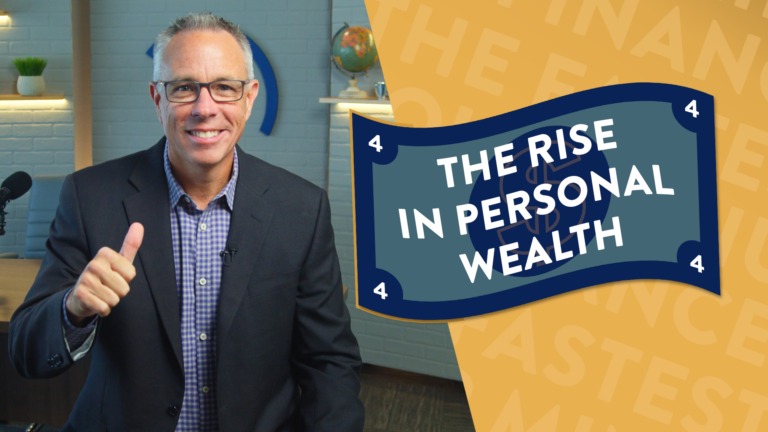When you’re a solo entrepreneur, you’ve got a lot on your plate. You know your business from the nitty gritty to the 30,000ft vision, and you’re the one responsible for making it happen. It’s only natural that thinking about much of anything beyond that can be a bit overwhelming. But you deserve to feel confident about the future you’re building! So, what do you do?
You don’t have the same options as hundreds of thousands of Americans at “normal” jobs, but you do have options! In this post, I’ll give you three retirement options that cater specifically to you: the Simplified Employee Pension Individual Retirement Account (SEP IRA), Solo IRA, and Defined Benefit Plans.
The Importance of Retirement Planning for Solo Entrepreneurs
As a solo entrepreneur, you are the heart and soul of your business. You’ve turned an idea into a reality and you’re passionately working towards its growth. However, amidst the daily hustle of running a business, retirement planning often takes a backseat. It’s easy to overlook, but just as you’re building your business, you also need to build a solid plan for financial independence.
Retirement might seem a long way off, but time flies faster than you think. The sooner you start, the more time you have for your hard-earned savings and investments to compound. It’s crucial for entrepreneurs to understand that your business might not be your retirement plan. Markets change, economies fluctuate, and having a personalized plan to give you options can help you feel more confident about your future. So, let’s take a look at your options!
SEP IRA: A Flexible Option
Understanding SEP IRA
The Simplified Employee Pension Individual Retirement Account, or SEP IRA, is a retirement savings plan designed specifically for self-employed individuals and small business owners. It’s a relatively straightforward and flexible option that can be a good fit for many solo entrepreneurs.
With a SEP IRA, you can contribute as an employer, and those contributions are tax-deductible. This can significantly reduce your taxable income while providing a robust vehicle for your retirement savings. In 2024, you can contribute up to 25% of your earnings or $69,000, whichever is less.
Another significant benefit of a SEP IRA is its flexibility. You aren’t bound by fixed annual contributions, meaning you can decide how much you want to contribute each year. This can be particularly beneficial for entrepreneurs whose income might fluctuate from year to year. You can make larger contributions in more profitable years and scale back when needed. In essence, a SEP IRA offers solo entrepreneurs a flexible and tax-efficient way to build retirement savings.
Pros and Cons of SEP IRA
Like all retirement options, the SEP IRA comes with its set of advantages and drawbacks. On the plus side, the SEP IRA allows for higher contribution limits compared to traditional IRAs. This means you can put away more money each year, providing a substantial boost to your retirement savings. Another advantage is the tax-deductible nature of the contributions. This can lead to significant tax savings, reducing your taxable income in the years you contribute. Moreover, the flexibility of the SEP IRA lets you adjust your contributions based on your income each year, which can be beneficial for the unpredictable income streams of an entrepreneur.
On the flip side, SEP IRA accounts don’t offer loan provisions. This means you can’t borrow against the assets in your SEP IRA in case of a financial emergency. Additionally, while the high contribution limits can be a boon, they are tied to your income. If your earnings are lower in a particular year, your potential contribution decreases as well. SEP IRAs also require you to make proportional contributions for any employees you have, which can be costly if your business expands.
Solo 401K: Ideal for High Earners
Diving into Solo 401K
The Solo 401K, also known as an Individual 401K or a One-Participant 401K, is a retirement savings plan designed for self-employed individuals with no full-time employees other than themselves or their spouse. This makes it a viable option for solo entrepreneurs who are looking to maximize their retirement savings.
A Solo 401K allows you to contribute both as an employer and an employee, which can significantly increase the amount you can put away each year. The total solo 401(k) contribution limit is up to $69,000 in 2024, or $76,500 for those aged 50 or older.
One of the key advantages of a Solo 401K is that it offers a loan feature, allowing you to borrow up to 50% of your account balance (up to a maximum of $50,000). This can provide a financial lifeline in case of emergencies. It can be a powerful tool for high earners looking to accelerate their retirement savings. However, it’s important to understand the intricacies of this plan to make the most of it.
Pros and Cons of Solo 401K
The Solo 401K is a powerful retirement savings tool, but it’s important to understand both its strengths and limitations. One of its major advantages is the high contribution limit, which allows you to save more each year compared to other retirement options. Another significant benefit is the loan feature. Unlike other retirement plans, the Solo 401K allows you to borrow from your account in case of financial emergencies. This flexibility can be a major advantage when navigating the unpredictable path of entrepreneurship.
However, the Solo 401K also has its downsides. It can be complex to set up and manage, often requiring more administrative work compared to other options. This might not be an issue for some, but it’s something to consider if your time is better spent elsewhere in your business. Furthermore, the Solo 401K is only available to self-employed individuals with no full-time employees, other than a spouse. This limitation may make it unsuitable for entrepreneurs planning to expand their business. And while the option to take a loan from your 401K in an emergency can be a plus, it can also be a dangerous option if misused.
Defined Benefit Plans: A Rigorous Savings Option
Deciphering Defined Benefit Plans
Defined Benefit Plans are another retirement savings option that can be particularly advantageous for certain solo entrepreneurs. Unlike SEP IRAs and Solo 401Ks, which are defined contribution plans, Defined Benefit Plans promise a specified monthly benefit at retirement. The benefit is calculated using a formula that takes into account factors such as salary history and duration of employment.
For solo entrepreneurs, these plans can allow for much larger contributions compared to other retirement savings options, potentially reaching over $275,000 annually for those closer to retirement age. This makes Defined Benefit Plans an attractive choice for high-earning entrepreneurs looking to catch up on their retirement savings later in their careers.
However, this rigorous savings option requires a long-term commitment. Once you set a Defined Benefit Plan in motion, you are obligated to make the promised contributions, even in leaner years. This makes Defined Benefit Plans less flexible compared to SEP IRAs or Solo 401Ks. If you can commit to the required contributions and are looking to significantly boost your retirement savings, a Defined Benefit Plan could be a suitable option for your retirement planning.
Pros and Cons of Defined Benefit Plans
On the upside, these plans can allow for much larger contributions compared to other retirement savings options. This makes Defined Benefit Plans an attractive option for high earners, especially those who are closer to retirement age and looking to catch up on their savings. Another significant advantage is the predictability of the payout. With Defined Benefit Plans, you know the exact monthly benefit you’ll receive at retirement, providing a sense of security and predictability.
However, Defined Benefit Plans are not without their drawbacks. They require a long-term commitment and financial discipline. Once you set up a plan, you’re obligated to make the promised contributions every year, regardless of your income fluctuations. This can make Defined Benefit Plans less flexible compared to other retirement savings options. Moreover, Defined Benefit Plans can be complex to set up and manage, requiring actuarial calculations and regular reporting. They often necessitate the assistance of financial professionals, adding to the cost.
Choosing the Right Retirement Plan for Your Business
Choosing the right retirement plan is a vital step toward financial independence. As a solo entrepreneur, it’s important to know that you have unique retirement options tailored to your needs. The SEP IRA, Solo 401K, and Defined Benefit Plan each offer unique benefits that could be right for you! Which is best depends on multiple factors, including your income level, age, financial goals, and your plans for business growth.
It’s important to weigh the pros and cons of each plan against these factors to make an informed decision. Remember, retirement planning is a marathon, not a sprint. It’s not about making the perfect decision right now, but about making consistent, informed decisions that move you closer to your financial goals. Start planning today to build toward true financial independence for your future.
The opinions voiced in this material are for general information only and are not intended to provide specific advice or recommendations for any individual.





